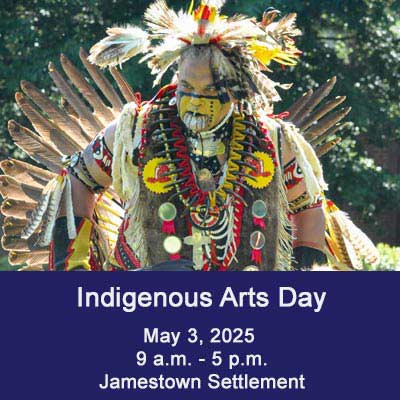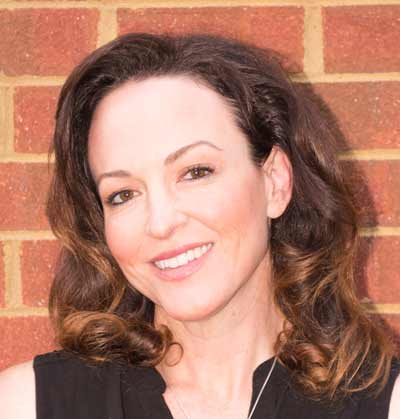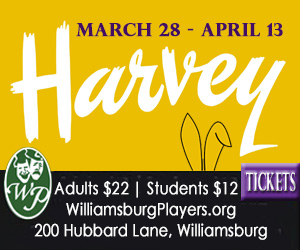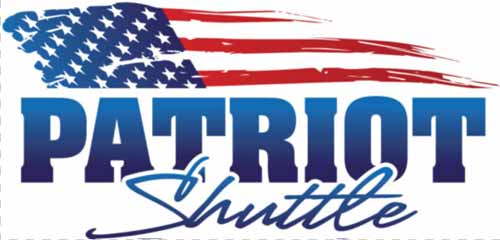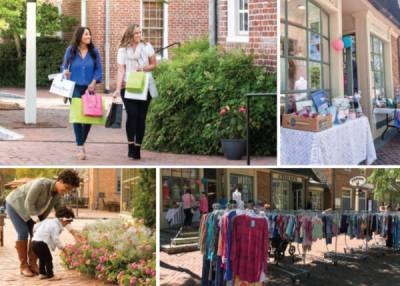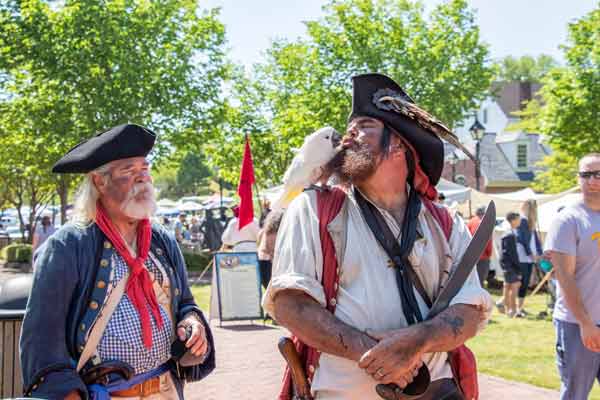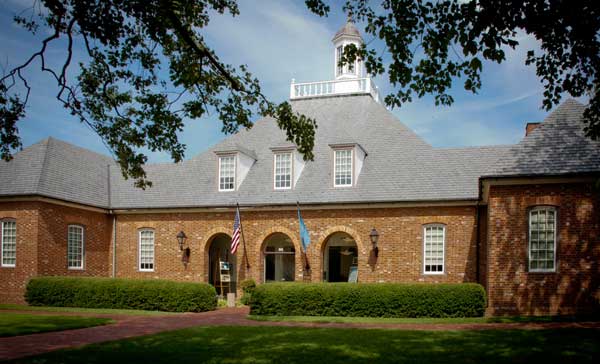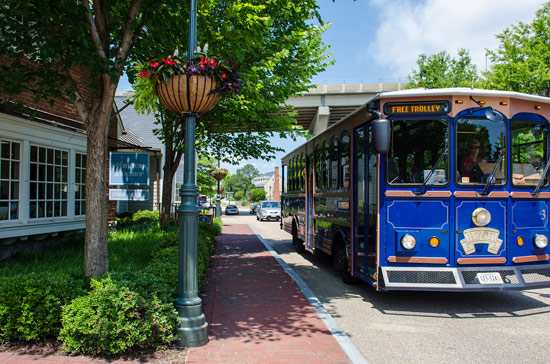Colonial Williamsburg is jam-packed with events during Black History Month
WHAT WE’RE LOOKING FORWARD TO IN A JAM-PACKED BLACK HISTORY MONTH
from Colonial Williamsburg’s Blog MakingHistoryNow.org

To understand ourselves as a people it is necessary to pay serious attention to the African American experience. It’s important to who we are as a people, a fact reflected in a very ambitious program of Black History month slated for February.
There’s not enough space to cover all the goings-on, but what follows is a selection of some highlights that I hope will entice you to take a longer look at what may be the most extensive Black History Month offerings in the foundation’s history.
WATCH A STORY UNFOLD

People often wonder why enslaved people didn’t run away more often. The answers are complicated. It’s about more than personal risk. It’s about what would happen to family and friends and your relationships with them. A two-part program explores this theme with the story of Joe and Dick, enslaved men who tried to run away at the onset of the Revolutionary War. In God Save the King at the Public Gaol, find out what motivated them.
Then head down to the Courthouse for The Examination of Joe and Dick, and see how the Williamsburg Committee of Safety, the shadow government acting in the absence of royal authority, deals with them. This second part is unscripted, so it flows according to the audience’s participation in the proceedings.
A Gathering of Hair reminds us that the people of the 18th-century were real people by letting us peer into the world of Elizabeth, a free black woman, and her enslaved friends, Agnes and Lydia, as they prepare for a gathering. These are women who are living their lives as best they can under difficult circumstances. None of them can claim full freedom, but that isn’t what defines them. They identify as wives, lovers, and friends, not merely how society may label them.
The protagonist of His Chosen Master is Bristol, who was the property of Lt. Governor Francis Fauquier. When the governor died in 1768, he allowed his slaves to choose their new masters. (The law prohibited freeing slaves without court approval, which was difficult to get, until 1781.) Find out who Bristol chose, and why, in the Raleigh Tavern’s historic Apollo Room.
You may remember the recent archaeological excavation in search of the site of the Bray School, where African-American children were educated in Williamsburg in the 1760s. In Lessons with Ann Wager, you’ll learn about Ann, the mistress of the school, and her students, but what makes this program even more unique is that it actually goes through lessons she would have given in the Bray School.
Affairs of the Heart is a guest favorite returning from a lengthy hiatus. It’s the wedding day of William and Anne, a white gentry couple. So what makes it fit here? Well, the action is in an area of the house where free and enslaved people are regularly crossing paths. There are… complications, as past relationships cast a shadow over the happy day. And the effects are widely felt. (Take that, Downton Abbey!)
WALK A MILE IN SOMEONE ELSE’S SHOES

Special tours will highlight African American struggles for freedom and equality from the vantage point of Williamsburg’s iconic buildings. Through Their Eyes explores the choices faced by Lord Dunmore’s enslaved and free servants after the last royal governor skipped town in 1775.
Slavery and the Law is the focus of the tour at the Capitol. Learn about how enslaved persons used the courts and the legislature to fight for their rights even as the law increasingly restricted their freedom.
Peyton Randolph was an important leader in the Revolutionary cause until his death in 1775. Like many other Patriots, he was also a slaveholder. Freedom’s Paradox explores the apparent contradiction from the vantage point of the 28 enslaved persons who were part of the Randolph household.
Take a thematic stroll through the Art Museums of Colonial Williamsburg with a guided tour of African-American Artists whose work is in the museum, but also explores works that portray the experiences of African Americans. A new exhibit, A Century of African-American Quilts, opens Jan. 30.
And while you are enjoying the Art Museums, take in one of the programs at the Hennage Auditorium. There’s an amazing list of events there in February, telling stories from the 18th through the 20th centuries. Just search for Hennage in the online calendar.
GET YOUR POPCORN READY!

For Black History Month, the Kimball Theatre is presenting a stellar lineup of films that that range from big-budget to documentary, and from classic to new release.
Highlights include Selma, The Butler, and 12 Years a Slave. But in light of recent events, what a perfect time to revisit Spike Lee’s eye-popping 1989 classic, Do the Right Thing. You’ll feel like the New York heat wave is really happening even if it’s freezing outside.
One new film is The Amazing Nina Simone, which tells the story of the talented, controversial, and sometimes erratic singer from growing up a preacher’s daughter in North Carolina to Civil Rights era activism to eventual exile. An early reviewer wrote that it “tells its exhilarating but ultimately tragic story well, with captivating archival footage and insightful interviews.
“Don’t be fooled by believing because a man is rich that he is necessarily smart. There is ample proof to the contrary.” Sure, it sounds like something from an op-ed in today’s paper. But those are the words of Julius Rosenwald, the subject of another documentary that debuted in 2015 and coming to the Kimball beginning Feb. 22 (mark your calendars!). It tells the extraordinary story of Rosenwald, who amassed great wealth building Sears, Roebuck and with the help of Booker T. Washington built more than 5,000 schools in African-American communities across the South in the early 1900s.
Don’t overlook the oldest flick on the schedule, Say Amen, Somebody, a 1983 documentary about American gospel music. Critic Roger Ebert called it “as exciting and uplifting as any music I’ve ever heard on film.” It stars Thomas A. Dorsey, known as the “father of black gospel music,” and one of the genre’s greatest soloists, Willie May Ford Smith.
Those are just some of the highlights. Download the Kimball Theatre’s complete upcoming schedule here.
And while you’re visiting, don’t forget to ring the bell!





